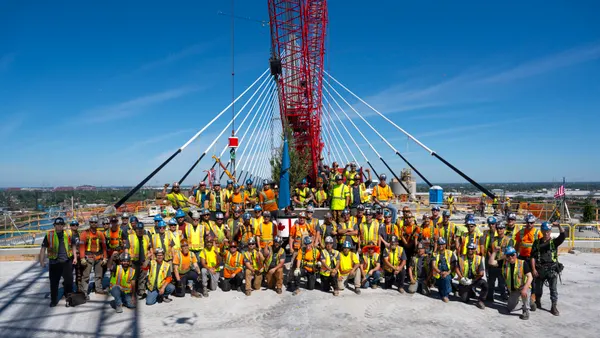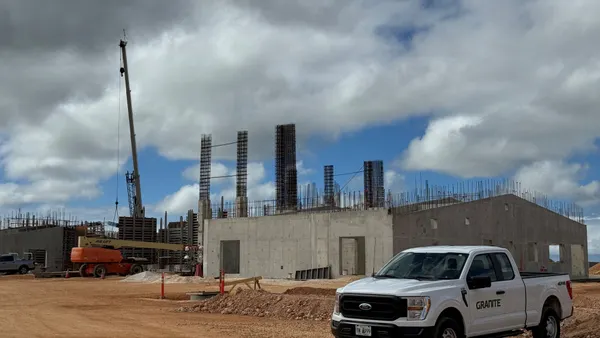Dive Brief:
- Toyota is closing up shop in California and moving its 3,000-employee, North American headquarters operation to Texas. That move isn't due to tax breaks or a more friendly business environment, but because of lower housing costs, according to Albert Niemi, dean of the Cox School of Business at Southern Methodist University and an insider with knowledge of the move, Los Angeles Business News reported.
- After hearing complaints from employees about the high price of homes in Torrance, CA, and Los Angeles County overall, Toyota investigated and determined housing costs there are three times more expensive per square foot than in the Dallas-Fort Worth metro area, according to Niemi.
- Chuck Dannis, Southern Methodist University real estate professor and senior managing director of National Valuation Consultants told L.A. Biz that North Texas median home prices are three to four times the median income, while Torrance, CA, homes are seven times the median income. He added that the median home in Dallas-Fort Worth costs approximately $210,000, and the median income is about $58,000. In Torrance, the median home price is $508,000, and the median income is $76,000.
Dive Insight:
"It was really about affordable housing. That’s what started the conversation," Niemi said. "They had focus groups with their employees. Their people said, 'We're willing to move. We just want to live the American Dream.'"
Prices in Los Angeles County are some of the highest in the U.S., and a recent survey of housing experts by Zillow cited the city as one of a handful of metro areas at risk for a housing bubble.
Home prices in the area have even prompted Mayor Eric Garcetti to target the goal of buliding 100,000 additional units of affordable housing by 2021. Garcetti is considering subsidizing the housing by imposing new developer fees.
Los Angeles County supervisors have also been motivated to tackle the affordability issue by voting unanimously to set aside up to $100 million a year to build and maintain affordable housing.
Even the 2024 Los Angeles Summer Olympics exploratory committee joined the conversation and, earlier this year, proposed a plan to convert Los Angeles' Olympic Village to affordable residential units after the Olympics.
Because of such a dearth of affordable housing, cities in California and elsewhere are implementing "inclusionary housing" laws that require a developer to set aside a specific number of affordable units in most developments.
A particularly contentious battle continues in San Jose, CA, over this type of regulation, where the city has mandated that developers of new-home communities of 20 or more units must offer 15% of those units at below-market rates. Developers can also choose to opt out of the requirement by paying a fee, which industry groups estimate to be $122,000 per home.
The California Building Industry Association, along with the Pacific Legal Foundation, filed a petition in September asking the U.S. Supreme Court to review San Jose's law, which the state Supreme Court upheld in June.













